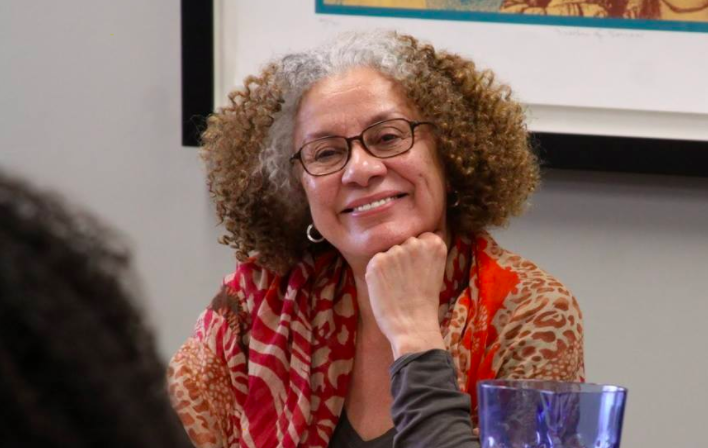You can read this text in Spanish here. Translation by Julia Pretsfelder.
What does it mean to be Latinx? Better yet, how can we define Afro-Latinx? These two terms have always been thought of exclusively: Latinidad typically does not include Blackness and Blackness does not include Latinidad.
Without a doubt, activist and professor Miriam Jiménez Román made an enormous contribution to the theoretical discussion surrounding Latinidad in the United States. The term “Latino” obscures the historic and cultural complexity of life in the Caribbean and Latin America, and one of Jiménez Román’s primary concerns was recognizing the African presence within the Americas.
Jiménez Román, a Black Puerto Rican woman and pioneer researcher of gender and race in the United States, passed away in early August. Jiménez Román was an activist, cimarrona, and a tireless anti-racist luchadora. In today’s global circumstances, more than ever, we honor her legacy.
Jiménez Román was the Executive Director of the Afro-Latin@ Forum, an organization that advocates for the visibility of Latin American and Caribbean afro-descendants in the United States. With a transnational perspective, the Afro-Latin@ Forum worked towards social justice through impactful dialogue—gathering Afro-Latinxs’ stories in order to capture the complexity of Black and Latinx identities throughout the continent.
Jiménez Román and Juan Flores co-edited a publication called “The AfroLatin@ Reader: History and Culture in the United States”(2010). They published the book in the wake of the United States’ 2000 census, which had pushed the media to insinuate that the United States was on its way to becoming a post-racial society where speaking about race would be unnecessary.
Jiménez Román and Flores compiled texts that captured the multifaceted nature of Latinidad through the lenses of race, ethnicity, gender, and the complexity of the territories. The anthology pioneered topics in Afro-Latinidad studies by including literary texts, testimonies, and academic articles that spoke of art, film, music, religion, and more. Furthermore, it featured Afro-Latin authors such as Eduardo Bonilla Silva, Marta Cruz-Janzen, and María Rosario Jackson.
Returning to Jiménez Román’s academic and political work is essential in the face of the circumstances we are living through. The pandemic has intensified the socioeconomic inequalities that Afro-Latinx folks face in the United States, Latin America, and the Caribbean.
Jiménez Román believed in the importance of continuing to theorize about race because it continues to determine the global hierarchies that impact our daily lives. She also constantly called for Black communities in the United States and in Latin America to unite in the anti-racist fight for a radically transformed society that benefits people of color around the world.
Rest in Power, Miriam.







